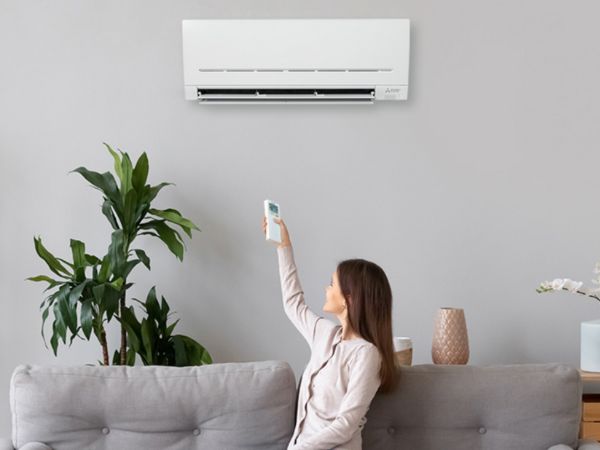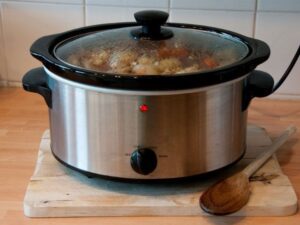Air Conditioning || Ultimate Guide (2023)

Air conditioning is a system that removes heat and humidity from the air. It cools and dehumidifies indoor air for comfort, health, and industrial purposes.Many different types of air conditioners are available, each with its advantages and disadvantages. The best type of air conditioner for you will depend on your needs and budget.This guide will discuss the basics of air conditioning, the different types of air conditioners available, and how to choose the right air conditioner for your home.
Contents
- 1 How Air Conditioners Work?
- 2 Types of Air Conditioners:
- 3 How to Choose the Right Air Conditioner?
- 4 SPJ Air Conditioners:
- 5 What are SEER and EER ratings, and why are they important?
- 6 How often should I service and maintain my air conditioning system?
- 7 What are some common air conditioning problems, and how can I troubleshoot them?
- 8 Conclusion: Air Conditioning
How Air Conditioners Work?
Air conditioners work by transferring heat from the inside of a building to the outside. This is done using a compressor, which pumps refrigerant through coils. The refrigerant absorbs heat from the air inside the building and releases it to the air outside.
The efficiency of an air conditioner is measured by its coefficient of performance (COP). The COP is the ratio of the heat removed from the air to the energy used by the air conditioner.
Auto Amazon Links: No products found. No products found. http_request_failed: A valid URL was not provided. URL: https://ws-na.amazon-adsystem.com/widgets/q?SearchIndex=All&multipageStart=0&multipageCount=20&Operation=GetResults&Keywords=What+is+the+use+of+air+conditioning%3F|What+is+the+working+principle+of+air+conditioning+system%3F|SAMSUNG+Galaxy+S23+Ultra+5G|What+is+mean+of+air+conditioning%3F|SAMSUNG+Galaxy+S23+Ultra+Cell+Phone&InstanceId=0&TemplateId=MobileSearchResults&ServiceVersion=20070822&MarketPlace=US Cache: AAL_3b7e573f205c7004a39e54728f37ed6e
Types of Air Conditioners:
Many different types of air conditioners are available, each with its advantages and disadvantages. The most common types of air conditioners are:
- Window air conditioners: Window air conditioners are the most popular type. They are relatively inexpensive and easy to install. However, they can be noisy and unsightly.
- Split air conditioners: Split air conditioners are more expensive than window air conditioners but more efficient and quieter. They consist of two units: an outdoor unit that contains the compressor and condenser and an indoor unit that contains the evaporator.
- Central air conditioners: Central air conditioners are the most expensive type but also the most efficient and quietest. They are installed in the attic or crawlspace of a home and distribute cool air throughout the home through a network of ducts.
- Portable air conditioners: Portable air conditioners are a good option for cooling small spaces. They are easy to move from room to room but can be noisy and inefficient.
- Mini split air conditioners: Mini split air conditioners are a type of split air conditioner designed for smaller spaces. They are more efficient than window air conditioners and can be installed in various locations.

How to Choose the Right Air Conditioner?
When choosing an air conditioner, there are a few factors you need to consider:
- The size of the space you need to cool
- The climate you live in
- Your budget
- Your energy efficiency goals
Once you have considered these factors, you can start shopping for air conditioners. Be sure to compare the different models and features before making a purchase.
SPJ Air Conditioners:
SPJ Air Conditioners is a leading provider of air conditioners in India. They offer a wide range of air conditioners to meet the needs of every home. SPJ Air Conditioners are known for their quality, efficiency, and quiet operation.
If you are looking for an air conditioner that will keep you cool and comfortable all summer, SPJ Air Conditioners is the perfect choice.
What are SEER and EER ratings, and why are they important?
SEER (Seasonal Energy Efficiency Ratio) and EER (Energy Efficiency Ratio) ratings indicate the efficiency of an air conditioner. Higher ratings mean better energy efficiency, which can lead to lower energy bills and reduced environmental impact.
Auto Amazon Links: No products found. No products found. http_request_failed: A valid URL was not provided. URL: https://ws-na.amazon-adsystem.com/widgets/q?SearchIndex=All&multipageStart=0&multipageCount=20&Operation=GetResults&Keywords=Galaxy+s23|Home+appliances|What+is+the+use+of+air+conditioning%3F|SAMSUNG+Galaxy+S23+Ultra+Cell+Phone|What+is+the+working+principle+of+air+conditioning+system%3F&InstanceId=0&TemplateId=MobileSearchResults&ServiceVersion=20070822&MarketPlace=US Cache: AAL_91396286a29bef782d42240c41a45372
How often should I service and maintain my air conditioning system?
Regular maintenance is crucial for the longevity and efficiency of your AC. You should have it serviced at least once a year, ideally before the cooling season begins, to clean filters, check refrigerant levels, and ensure all components are working correctly.
What are some common air conditioning problems, and how can I troubleshoot them?
Common issues include insufficient cooling, strange noises, and leaks. You can troubleshoot some problems, like cleaning or replacing filters, but for complex issues, it’s best to call a professional HVAC technician.
Conclusion: Air Conditioning
Air conditioning is a valuable investment that can help you stay cool and comfortable all summer. Choosing the right air conditioner for your needs can save money on your energy bills and improve your home’s comfort.
This guide has been helpful. If you have any further questions, please do not hesitate to contact us.








